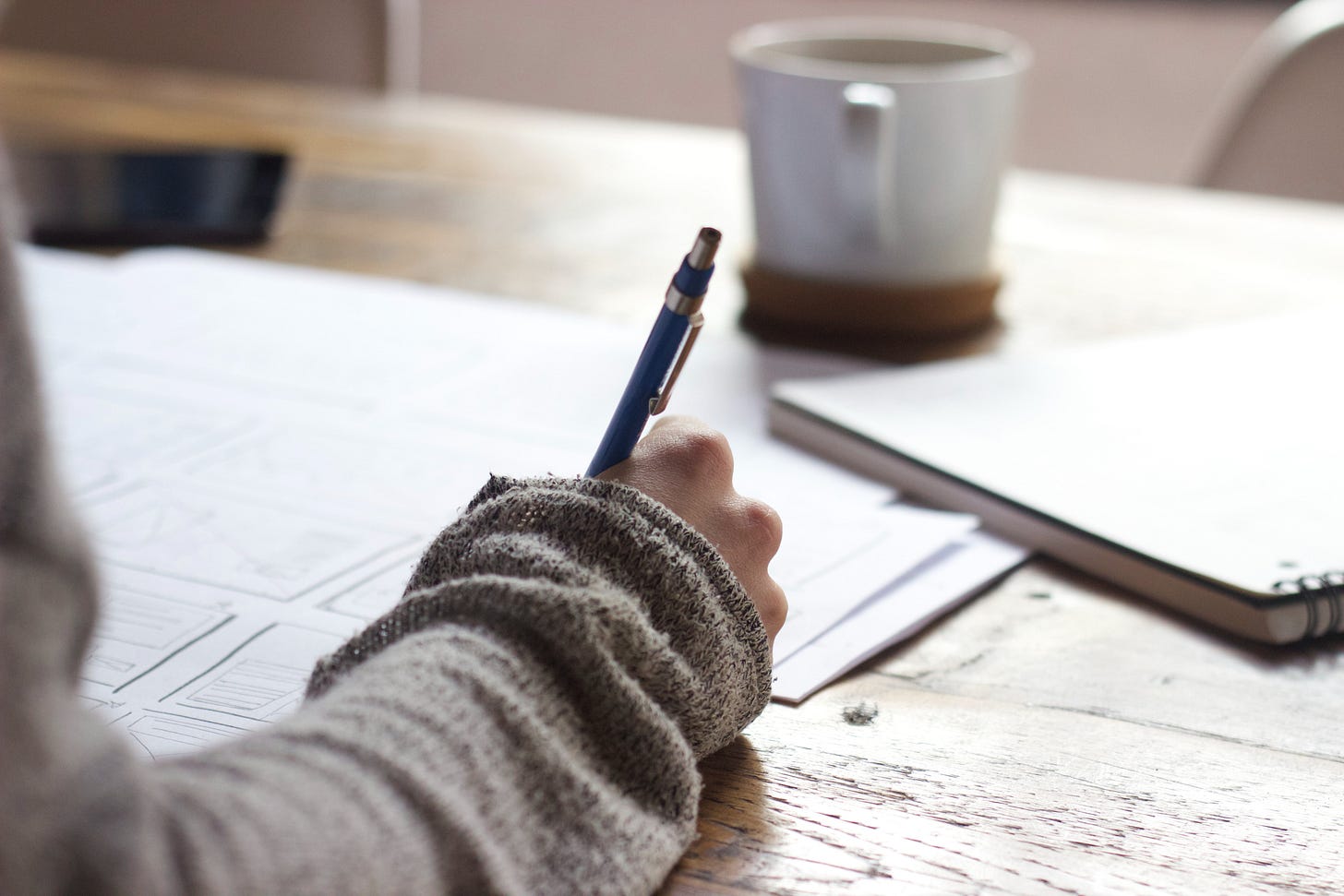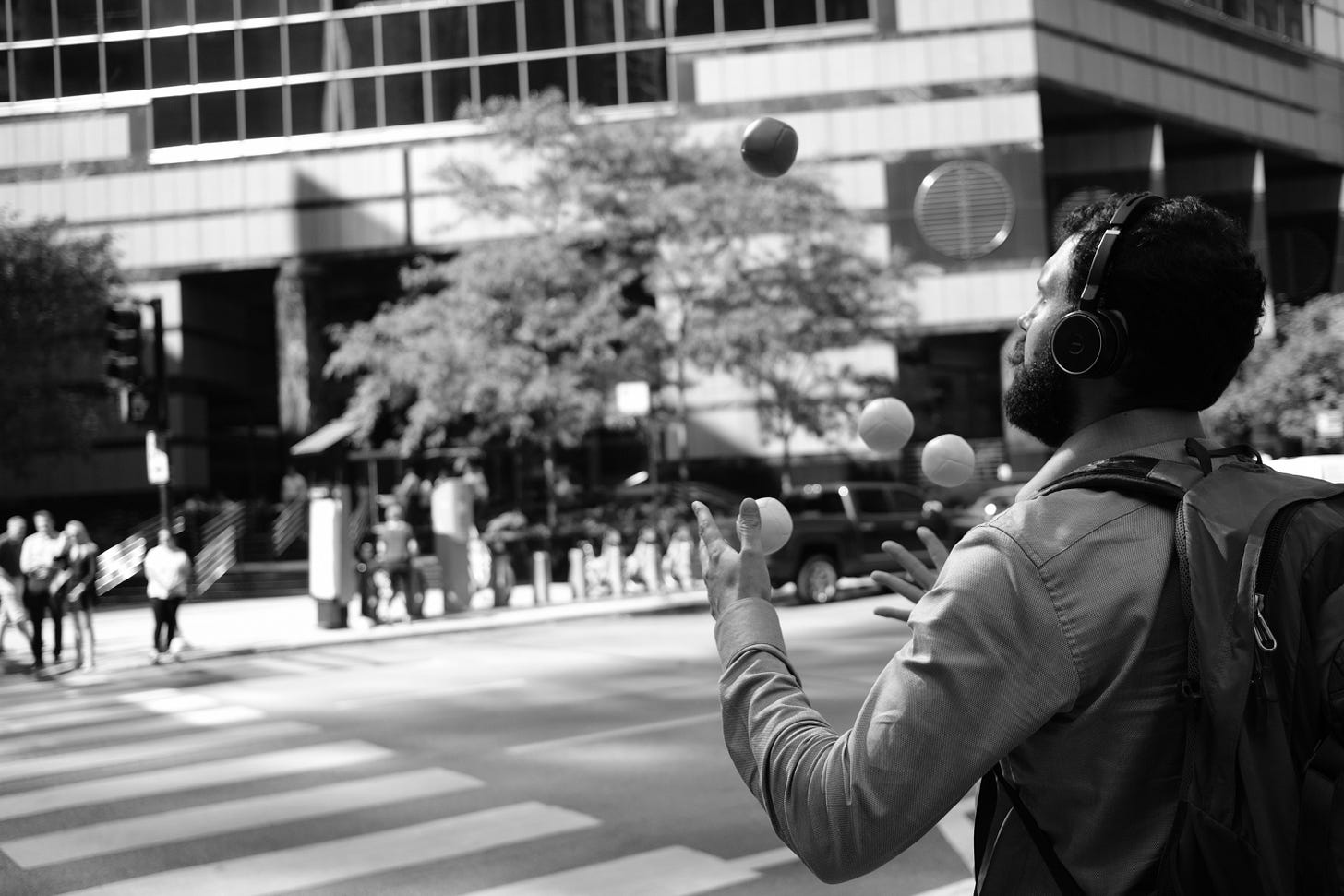The Dark Side of Multi-tasking: How it Harms Your Productivity and What You Can Do About It
In today's world, we are constantly bombarded with information, tasks, and distractions.

From using Instagram while eating dinner to reading LinkedIn posts while attending meetings in the board rooms, we are constantly trying zero down the FOMO of notification badges.
As a result, multitasking has become a way of life, as we try to juggle multiple tasks at once in order to get more done in less time.
However, a study published in the Journal of Experimental Psychology found that multi-tasking can decrease productivity by up to 40%. The study found that people who switch between tasks experience a significant decrease in performance compared to people who focus on one task at a time.
In this blog post, we will explore the dangers of multitasking, why it is bad for productivity, and what you can do to overcome it.
What is Multitasking?
Multitasking is the act of performing multiple tasks or activities simultaneously or in rapid succession.
This can include doing different types of work at the same time, switching between tasks frequently, or attempting to complete multiple tasks in a short amount of time.
It is like a juggling act - it involves trying to keep multiple balls in the air at the same time. It might mean answering emails while on a conference call, switching between projects every few minutes, or trying to finish several tasks together before a deadline.
But, Atul, this looks like a good thing, we are able to do multiple things at once and we have only so much time in a day, this is the only way to catch up with everything.
What You Need to Know about Multitasking: Debunking 5 Common Myths
We often feel multitasking is a great way of achieving more in less time, little are we aware of the affects it has on our brains and our productivity.
Myth: Multitasking saves time
Fact: In reality, multitasking can waste time and lead to errors in your work
Myth: Multitasking is an effective way to get more done
Fact: When you try to do too many things at once, your brain becomes overloaded and it's harder to focus on any one task
Myth: Multitasking is essential in today's fast-paced work environment
Fact: While it might seem like you need to be constantly doing multiple things at once, focusing on one task at a time can actually help you be more productive in the long run
Myth: Multitasking is a sign of good time management
Fact: In reality, multitasking can lead to decreased performance and quality of work
Myth: Everyone can effectively multitask
Fact: Some people might think they're great at multitasking, but research shows that even so-called "skilled multitaskers" aren't as efficient as they think.

How Multitasking affects Productivity and Focus
Multi-tasking is often touted as a great way to get more done in less time. However, multi-tasking can have a negative impact on cognitive control. People who multi-task more frequently show a lower ability to filter out irrelevant information and maintain focus on a task.
Daniel Levitin, author of The Organized Mind quotes - "When we're multitasking, we're not just harming our performance in the moment; we may very well be damaging our ability to perform well in the future as well."
Here are some reasons why:
It Reduces Focus: When we try to do multiple things at once, our brain has to constantly switch between tasks, which can reduce our ability to focus on any one task.
Every time you switch tasks, your brain needs time to refocus and get back into the flow. This means that you end up spending more time on each task than you would if you focused on one thing at a time.
It Increases Stress: Trying to juggle multiple tasks at once can also increase our stress levels, making it harder to stay calm and focused.
When you multi-task, your brain is constantly trying to juggle multiple things at once, making it harder to stay calm and focused and can be very stressful.
This can lead to feelings of overwhelm and anxiety, which can have a negative impact on your mental health.
It Reduces Quality of Work: Multi-tasking can also lead to a reduction in the quality of your work. When you try to do too many things at once, you are not able to give each task the attention and focus it deserves.
And if we're not fully focused on a task, we're more likely to make mistakes or overlook important details.
It Wastes Time: When you multi-task, you are not fully engaged in any one thing. This can result in a loss of creativity, as you are not able to fully immerse yourself in the task at hand.
And, since a lot of time is spend switching between tasks than we do actually completing them, multi-tasking can actually waste time.
Real-World Examples:
Multi-tasking is prevalent in both personal and professional settings. Here are a few examples:
Personal:
Example 1 - Do you remember the last time you watched a movie while checking your emails and scrolling through social media at the same time? Chances are, you weren't able to fully enjoy the movie, and you weren't able to fully engage in any of the other tasks either.
Example 2 - Or about the last time when you tried to cook dinner while also checking Instagram and helping your child with homework. You accidentally burnt the food, and also made mistakes on your child's homework.
Professional:
Do you remember that day when you were in a Zoom call with your team, but you ended up missing an important point because you were trying to check and reply to emails at the same time?
As a result, you didn't fully understand the project's scope or your responsibilities. Later, when you were asked to provide input on the meeting's minutes (MOM), you couldn't offer any meaningful input because you weren't fully paying attention.

How to Stop Multitasking and Stay Focused?
If you want to get things done, you need to focus on one thing at a time. Multi-tasking is a myth." says Chris Bailey, author of "The Productivity Project.”
Here are top 5 tips to help you overcome the temptation to multi-task:
Use the Pomodoro Technique: The Pomodoro Technique is a time management method that involves breaking down work into intervals, usually 25 minutes, separated by short breaks.
By working on one task at a time during each interval, you can focus better and complete tasks more efficiently.
Prioritize tasks: Create a to-do list and prioritize tasks according to their importance and urgency. Focus on completing the most critical tasks first before moving on to less important ones.
Minimize distractions: Turn off notifications on your phone and computer, close unnecessary tabs on your browser, and avoid checking social media or email while working on a task.
Infact, one good way of handling Social media, instead of turning it off completely, allocate a dedicated time of your day where you only browse Instagram, or watch Netflix.
This was you know, you will be able to catch up with your friends, latest insta trends or watch you favourite series and not worry about it whole day.
Set boundaries: Let colleagues know when you are working on a task and cannot be interrupted.
Consider using a "do not disturb" or "focus" mode on your messaging app to avoid unnecessary interruptions.
Block your Calendar for the time, when you need to do focused work, so that others are aware and do not disturb you.
Delegate Tasks: If you have too much on your plate, consider delegating some tasks to others. This will help you focus on the most important tasks and reduce the amount of multitasking you need to do.
Delegating tasks can also help you build stronger relationships with your team members or colleagues, as it shows that you trust them to handle important tasks.

Bonus Tip
Taking notes - This is one of the easiest and forgotten ways one can use to bring the focus back at your work. Yes, taking notes can be a helpful strategy to avoid multi-tasking.
Instead of immediately switching to a different task when an idea or distraction pops up, you can write it down quickly and return to the task at hand. This helps you stay focused on the current task while also capturing the idea or reminder for later.
It can be especially helpful to keep a notepad or digital note-taking app handy during meetings or while working on a project to quickly jot down any ideas or thoughts that come up.
By doing so, you can maintain focus on the current task, while also addressing other ideas or concerns in a more structured and productive manner later.

Conclusion
Multi-tasking may seem like a way to get more done in less time. It feels good that we are able to do multiple things at once and are masters at it, but this happiness is short lived.
However, multiple studies have shown that that multi-tasking can decrease productivity by up to 40%, making it harder to achieve your goals.
By prioritizing your tasks, eliminating distractions, taking breaks, practicing mindfulness, and using proven strategies to stay organized, you can overcome the multi-tasking trap and boost your productivity in both your personal and professional life.
Keep in mind that everyone's work style and preferences are different, so it's important to experiment and find what works best for you.
It’s always the Quality and not Quantity, hence it’s recommended to focus on one task at a time whenever possible, and to avoid trying to do too much at once.
Having said that, there are few activities one can perform to bring back their focus and become more productive especially while working for an extended period of time.
Finally, some multitasking!
Here are 3 things one can do simultaneously while working without hampering productivity. In fact, these activities can even enhance your focus and well-being.
#1 Listening to music 🎧 🎶
Studies have shown that music can help reduce stress and anxiety, and also activate different areas of the brain that are not directly related to the task at hand.
This can help keep your mind from getting bored or fatigued, and help you stay engaged with your work.
Personal tip* - Songs with background music, that doesn't involve following lyrics works for me.
#2 Taking Breaks ☕ 🚶♂️
When we are working for an extended period of time, our bodies and minds can become fatigued, which can lead to decreased productivity and increased stress.
Taking short breaks to stretch or do some light exercise, such as walking, can help boost energy levels, without taking away from work time.
This helps in bringing back the energy level by increasing blood flow and oxygen to the brain and body. For me, Tea is the ultimate tool for getting back on track.
#3 Fidgeting 🎲
It is believed that fidgeting helps stimulate the brain and keep it engaged, reducing the likelihood of getting distracted or bored. Remember, the yellow squeeze balls.
It can help suppress the urge to constantly check phones or even move away from your seats.
So, while it may not be suitable for everyone, fidgeting can be a helpful way to multitask without compromising productivity.
Remember, these depends from person to person. The key here is to identify tasks that complement your work, and allow you to focus better rather than distract from it.



